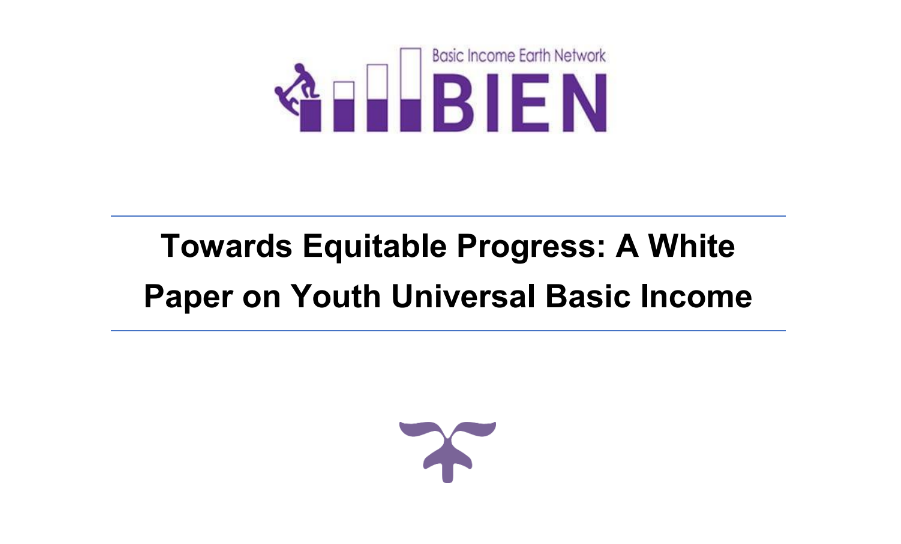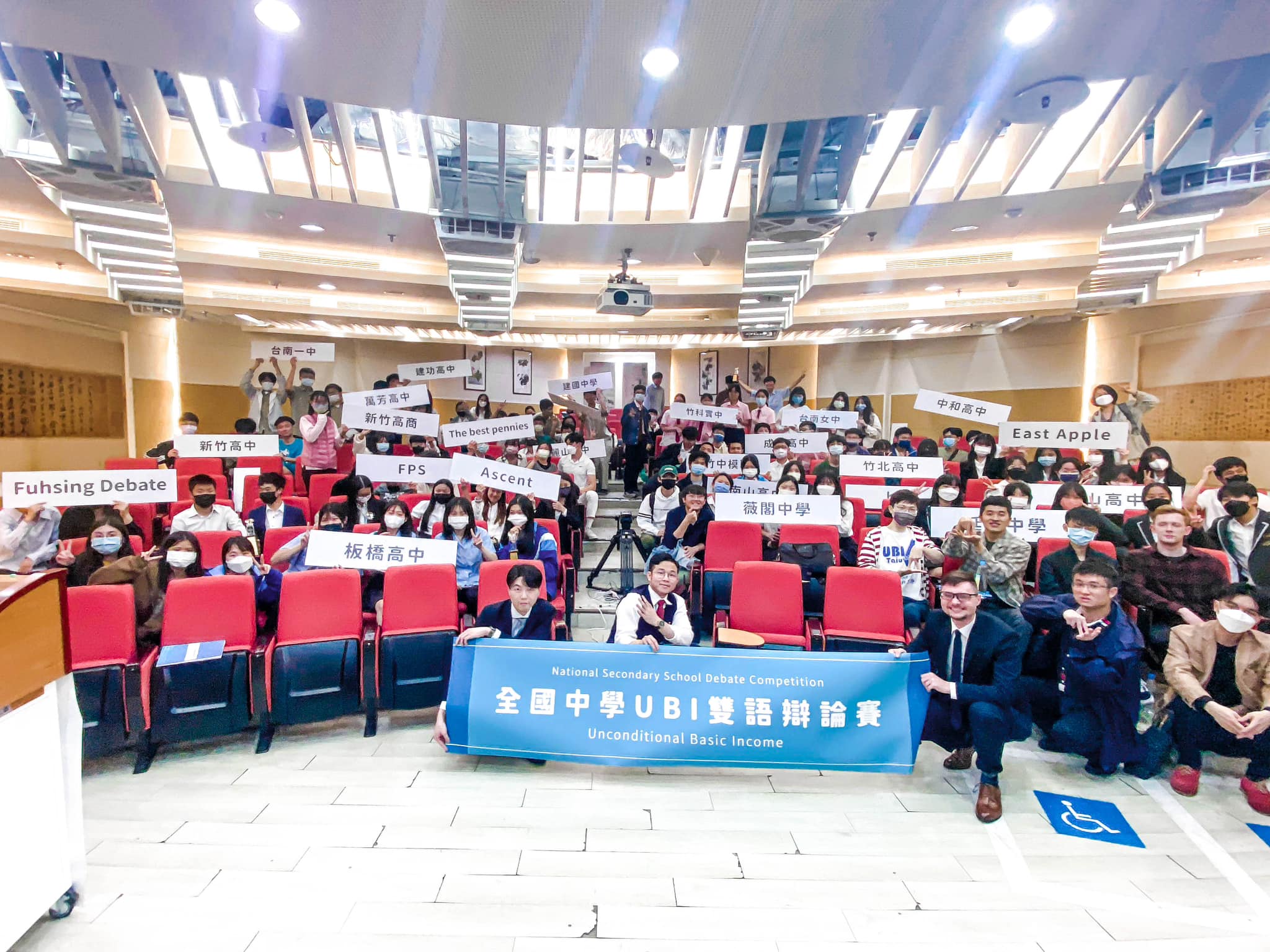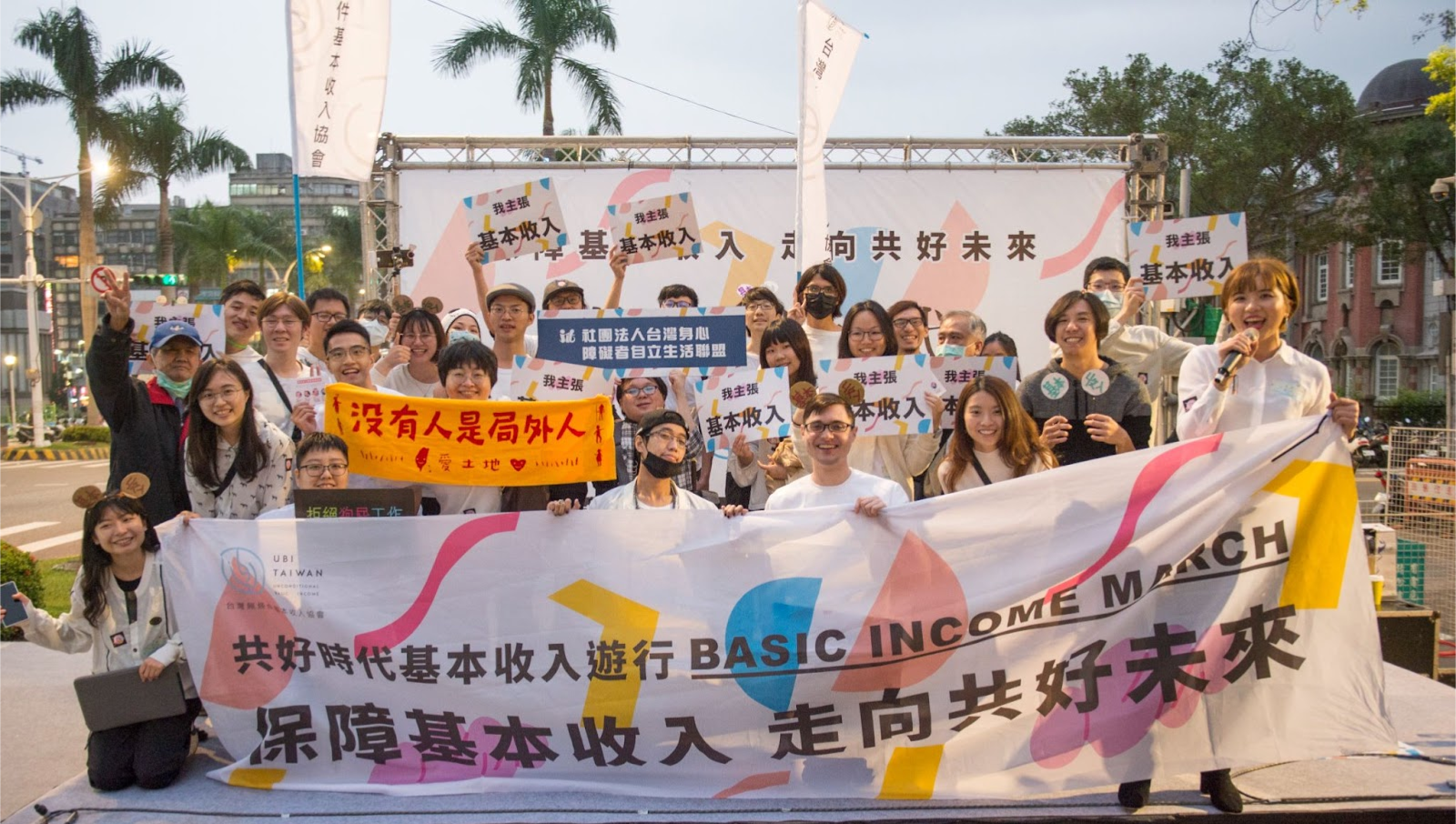
by Tyler Prochazka | Nov 15, 2023 | Opinion
In a recent study conducted examining attitudes among Chinese youth towards basic income, notable findings emerged, highlighting both a lack of comprehensive understanding and a positive disposition towards the concept.
The study, conducted through a questionnaire by BIEN student interns in China, focused on Chinese youth’s awareness and perceptions of basic income, a topic gaining relevance amidst economic challenges in China. With the country experiencing a slowdown in its rapid economic growth, phenomena such as “inward curling” and “lying flat” have emerged, indicative of the pressures faced by young people.
Basic income, a program offering financial support without conditions, is posited as a solution to alleviate these pressures, providing individuals with the dignity of survival and the power of choice.
Key findings from the survey reveal that while Chinese youth are enthusiastic and hold a positive attitude towards basic income, their understanding is limited. Nearly half of the respondents lacked a fundamental grasp of the concept and many held misconceptions about its universal nature. A significant portion believed the amount should vary based on location or personal income, contrary to the principle of universality inherent in basic income.
Despite these gaps in understanding, the overall response from Chinese youth was optimistic, reflecting a societal inclination towards fairness and the belief in basic income as a beneficial social program.
These insights suggest a need for further education and awareness-raising efforts, perhaps spearheaded by organizations like the Basic Income Earth Network (BIEN), to enhance understanding and support for basic income among China’s youth. Such efforts could play a crucial role in addressing the challenges faced by this demographic and in shaping the future of social welfare programs in China.
The full details and analysis of this study can be found in the original research found here.
Written by: Shengjia Qin & Rui Liang
Edited by: Tyler Prochazka
Mentor: Tim Lu

by Tyler Prochazka | May 30, 2023 | Chinese
台灣台北 – 3 月 11 日至 12 日,台灣無條件基本收入協會 UBI Taiwan 在國立政治大學 (NCCU)舉辦了全國雙語高中辯論賽。此次活動吸引了台灣本地和國際學校的 100 多名學生參加。
辯論的主題是台灣是否應該制定無條件基本收入(UBI)制度。學生們提出了案例,討論無條件基本收入的可行性、必要性和效率等議題。通貨膨脹是反方普遍關注的問題,而擴大台灣人民的機會,例如創業,是正方的普遍論點。
中文組的決賽由正方獲勝,裁判認為反方無法具體說明為什麼台灣沒有足夠的資金來實行 UBI 。在英語組決賽中,基於通貨膨脹和可行性,可能會給台灣實施 UBI 帶來問題的這些論點,讓反方獲得勝利。
許多學生對這個比賽表示感謝。他們認為藉由這個機會討論台灣未來面臨的問題很重要。有些人是第一次聽到無條件基本收入,他們覺得這次經歷是一個寶貴的學習機會,可以探索台灣社會的未來。
UBI Taiwan 創辦人羅泰 Tyler Prochazka 在活動結束時向觀眾致辭,討論 ChatGPT 的興起與社會對自動化的恐懼。他還強調了台灣所面臨的緊迫問題,例如政府該如何幫助正在養孩子的父母,尤其是單親家庭,是很值得跟 UBI 一起討論的。 羅泰認為,台灣現在就可以實施一項對有孩子的父母提供無條件基本收入的計劃,他引用了大量研究表明利大於弊。
羅泰表示:“我相信,透過聚在一起進行這些討論,我們可以更加了解無條件基本收入的潛力以及它如何造福我們的社會與經濟。”
Lead for Taiwan 的共同創辦人陳孝彥 Allen Chen 強調了辯論在解決影響台灣未來的問題上的重要性。他鼓勵學生利用自身的學術經驗,在現實世界中做出改變。
此次活動是推動台灣雙語辯論賽的里程碑,參賽者來自高雄、台北美國學校、新莊中學、薇閣中學、建國中學等學校。這是台灣首次舉辦的此類比賽,將英語和中文辯論聚集在一起,學生也可以免費參加。
大賽評委擁有多元化的國際背景,包括知名律師、聯合國顧問、全球頂級商業顧問等,為參賽者提供了寶貴的真實反饋。
NCCU 的國際創新學院提供了場地,而思躍軟實力培訓所 Ascent Academy 資助了此次活動,以推廣全台灣的辯論風氣。以全國辯論賽聞名於台灣的中華辯論推廣協進會(CDPA)則執行了此次比賽。
UBI Taiwan 理事長蘇嘉冠表示, 希望未來繼續舉辦全國雙語辯論賽,讓全台學生有機會參與辯論活動,加深對社會議題的了解。
他說 “我在這場比賽裡所看到的,不僅只是討論基本收入的疑慮或可行性等常見問題,更多的是同學們對一個美好、公平社會體制的想像與未來。身為觀眾的我深受感動,也期待這段經驗能成為他們以後成長的養份。”

by Tyler Prochazka | Apr 17, 2023 | News
TAIPEI, Taiwan – On March 11 and 12, UBI Taiwan hosted a national bilingual high school debate tournament at National Chengchi University (NCCU). Over 100 students from local and international schools across Taiwan participated in the event, which featured both English and Chinese debate sections.
The debate focused on whether Taiwan should enact an Unconditional Basic Income (UBI) system. Students presented cases discussing the feasibility, necessity, and efficiency of UBI. Inflation was a common concern on the con side, while expanding opportunities for Taiwanese citizens, such as starting businesses, was a popular argument on the pro side.
The Chinese final round saw the pro side win, arguing that the con side could not specifically identify why Taiwan did not have enough money to support both UBI and other essential programs. In the English final round, the con side emerged victorious, based on the idea that inflation and feasibility could present problems for implementing UBI in Taiwan.
Many students expressed their gratitude for the platform to speak on issues that mattered to them. For some, it was their first time studying UBI, and they found the experience to be a valuable learning opportunity to explore the future of Taiwan’s social services.
UBI Taiwan founder Tyler Prochazka addressed the audience at the end of the event, discussing the fear of automation with the rise of ChatGPT. He also highlighted the pressing issues in Taiwan that merit discussing UBI, such as helping parents raise their children, especially single parents. Prochazka argued that a program providing an unconditional basic income to parents with children could feasibly be implemented now, citing numerous studies showing the benefits outweigh the costs.
“I believe that by coming together to have these discussions, we can better understand the potential of a UBI and how it can benefit Taiwan’s society and our economy,” Prochazka said.
Allen Chen, co-founder of Lead for Taiwan, emphasized the importance of debate in addressing issues affecting Taiwan’s future. He encouraged students to take their academic experience and make a change in the real world.
The event was a milestone in promoting bilingual debate competitions in Taiwan, with participants from schools such as Kaohsiung and Taipei American School, Hsin Chuang High School, Wego High School, and Chien Kuo High School. This was the first competition of its kind in Taiwan, bringing English and Chinese divisions together in a tournament that was free for students to participate in.
The judges of the competition had diverse international backgrounds, including renowned lawyers, United Nations consultants, and top global business consultants, providing valuable real-world feedback to the participants.
NCCU’s International College of Innovation provided support and the venue, while Ascent Academy sponsored the event financially to expand debate opportunities across Taiwan. Taiwan’s Chinese Debate Promotion Association (CDPA), which is well-known in Taiwan for its national debate tournaments, administered the competition.
UBI Taiwan’s chairman Jiakuan Su said he hopes to continue hosting national bilingual debate competitions in the future, providing students throughout Taiwan with the opportunity to engage in debate activities and gain a deeper understanding of social issues.
“What I saw in this competition was not just about discussing common issues of basic income, but more about the students’ imagination of the future of our social welfare system,” Su said. “As an audience member, I was deeply moved by their speeches and I hope this experience can be an important component of their development into engaged citizens.”

by Tyler Prochazka | Jan 17, 2023 | Featured
Taiwan is making history by sending out a one-time universal cash payment of $6,000 New Taiwan dollars (NTD) to every citizen “young and old.” This is the first time the country has implemented such a policy, and it comes as a result of excess tax revenue of $450 billion NTD, much of which is coming from corporate taxes that have seen record-high profits. $140 billion NTD will be dedicated to the cash payments, with the remainder going towards improving labor and health insurance systems and providing funding for local governments.
UBI Taiwan hailed the move as a victory for Taiwanese citizens, as the payment is unconditional and universal, meaning that everyone in the country will receive it, regardless of income or other circumstances. They said it reflects the growing demand that a greater proportion of Taiwan’s growth is shared with average families.
“This is a huge victory for the basic income movement,” UBI Taiwan founder Tyler Prochazka said.
UBI Taiwan promotes unconditional basic income (UBI) in Taiwan. UBI is a policy that periodically sends out unconditional cash payments to every citizen in a country regardless of an individual’s income or job status.
The organization has noted the problem of stagnant wages for the last two decades in the country and the rising cost of housing. Through basic income payments, they argue that many Taiwanese could pursue better opportunities and improve their education.
“Unconditional cash transfers are an efficient way to provide an ‘economic vaccination’ to make sure that everyone can face the future in a healthy and happy manner,” said Jiakuan Su, the new chairman of UBI Taiwan.
Over the last few years, Taiwan’s economy has experienced record-breaking 6.45% GDP growth in 2021 and over 8.73% growth in exports in 2022. However, most people have not enjoyed the fruits of this economic growth, as a 104 Job Bank survey found that real wage growth was nearly zero in 2022 due to inflation. The universal cash payment is a way for everyone to have a small share in Taiwan’s economic success.
“With the rise of the pandemic over the last few years, Taiwan has experienced rapid changes in its economy and society,” Su said. “We have experienced directly why Taiwan needs a resilient social welfare system to protect each person’s economic security.”
Since the payment is equal to all taxpayers, it will have a progressive effect with a greater proportion of the refund going to low-income earners. There is some expectation that the cash payment could help stimulate the economy because low-income households are more likely to use the money to satisfy their essentials, such as food and housing, freeing up some additional discretionary money for recreational uses as well. A greater willingness to spend by average families could help smaller businesses that may have struggled since the pandemic.
Both political parties have agreed on the general outline of the proposal and the cash could be sent out as soon as February. A surprise has been that the plan appears to be a universal rebate of the revenue instead of a targeted one, which will make it easier for everyone to apply and reduce administrative costs and time. One area still under consideration is whether foreign taxpayers will receive any of the money.
Previous cash assistance schemes during the pandemic were targeted and a stimulus voucher was sent universally. The pandemic vouchers were limited in how they could be spent and had an expiration date, similar to the vouchers under former President Ma Ying-Jeou.
Members of the Kuomintang (KMT) and Taiwan People’s Party (TPP) argued during the pandemic that cash should have been sent out instead of vouchers. At the time, the TPP held a news conference with UBI Taiwan to discuss the benefits of cash over vouchers. Many also complained that the targeted cash programs were difficult to receive because of the strict conditions.
Research by the World Bank later demonstrated that the simplicity of universal and unconditional cash payments during the pandemic increased access to the assistance and likely provided economic stimulus. Previous research showed a multiplier effect up to $2.6 for every dollar sent. Fears of saving the cash were largely overblown. For example, in over a dozen economies primarily in East Asia, 40 percent of the universal cash transfers during the pandemic were directly used for consumption.
Besides improved standard of living, research on basic income consistently shows improved mental health and trust in society. A meta-analysis of basic income policies looked at eight governmental reports as well as seven peer reviewed studies. They found there was justification that the alleviation of stress from financial instability could be a reason for improved mental health from basic income.
There have been criticisms of the current cash payment plan, including concerns about inflation. However, it is important to remember that this is surplus tax revenue that has already been collected and is not new money created by the central bank. An effect on inflation is just as likely if the government directly spends the money or if it is sent back to taxpayers.
Additionally, while it is true that Taiwan’s insurance systems require further reforms for sustainability, the vast majority of the surplus revenue is being used to shore up these systems and provide an emergency fund. A one time injection of funds is helpful but will not save these systems in the long run.
Previously, basic income advocates from UBI Taiwan have suggested that Taiwan could establish a sovereign wealth fund (SWF). Such a fund would act as a guarantee that Taiwanese could enjoy more equity in the growth of Taiwan’s economy even if wages remain stagnant. Excess revenue could be placed in the SWF and invested in the economy, with dividends from the SWF distributed back to the people each year, similar to the system in the US state of Alaska. The Alaska Permanent Fund sends out a yearly payment from the oil revenue generated in the state. In 2022, the universal payout reached a record high of $3,284 USD.
“I applaud the government’s decision to send the universal cash transfer and hope this establishes the precedent for Taiwan to consider making this a permanent policy,” Su said.
Prochazka furthered that by making this payment equal to all citizens, the government is taking the “first small step” towards ensuring that the benefits of economic growth are shared by all.

by Tyler Prochazka | Aug 25, 2021 | Chinese
經過一年多的時間,台灣避免重大的本土 COVID 疫情的爆發,不過台灣在 5 月經歷了恐慌,出現了數百個病例。由於一夜之間數以百萬計的工作崗位不穩定,這將普發現金的措施帶到了台灣政治辯論的前沿。
在此背景下,UBI Taiwan 於 8 月 15 日舉辦了首次線上基本收入高峰會,邀請來自世界各地的學者、運動人士以及政治人物來討論疫情期間的基本收入狀況。
韓國京畿道知事李在明在高峰會開幕時指出了基本收入運動對於韓國和台灣的重要性。李現正參選韓國總統競選初期的領先地位。由於他的社會福利的政見,他被稱為『韓國的桑德斯』。
「當世界正在實施擴張性財政政策時,基本收入作為面臨第四次工業革命時代的最理性和準備措施」李說。
作為城南市前市長,李實行了一項青年基本收入計畫,該計畫讓該市所有 24 歲的青年每季度獲得地方貨幣。該計畫說明地方貨幣可以改善該地區的小型企業活動。後來當他成為知事時,他將該計畫擴展到了全省。
Kim Kyeong Soo 是京畿道政府願景規劃師的管理人。他也是青年基本收入計畫的規劃者。
「我們所做的是實現年輕人的基本社會權利而保障年輕人的權利」Kim 說。
青年基本收入是 COVID 危機期間的一個有用模型,因為省政府能夠在經濟衰退期間迅速擴大該計畫以包括該省的所有居民。
Kim 還討論了他們如何在疫情期間增加不同的社會福利項目,以及在全國範圍內推動基本收入的計畫。
「我們將地方貨幣的設計成只能在年銷售額在 12 億韓元以下的商店中可以用,這樣才能真正振興真正的胡同經濟的小企業主」Kim 說。
韓國基本收入網的成員 Mok Hwakyun 和 Kim Jae-seop 出席了高峰會的問答環節。他們提到基本收入已經成為韓國的主流話題。
「最大的變化是現在每個人都知道基本收入。我希望韓國能夠成為第一個實施 UBI 的國家」Mok 說。
著名的美國活動家 Scott Santens 在會議的採訪,他討論了美國大規模的 COVID 救濟計畫的成功和失敗。在美國已經出現的最大變化之一是兒童稅收抵免,Santens 表示,他相信這將使更多人會支持全民基本收入。
「我充滿希望,尤其是每月的兒童稅收抵免將真正改變這裡的情況,並有助於為美國建立真正的 UBI」Santens 說。
台灣陽明大學黃嵩立教授討論了全民基本服務與基本收入之間的爭論。他的結論是,基本服務沒有提供與基本收入相同的個人自由。
UBI Taiwan 理事長羅泰(Tyler Prochazka )評估了台灣的 COVID 救濟響應,並指出了台灣救濟的不足和複雜性。
今年 5 月,當地爆發導致台灣在疫情期間首次進入三級。台灣正在經歷一個奇怪的矛盾,儘管其他行業被封鎖,但其強勁的出口產業推動了台灣創紀錄的經濟增長。與此同時,封鎖令台灣員工經歷了數十年來最糟糕的經濟狀況,尤其是服務業。
由於封鎖,一半台灣人的工資減少了 10% 至 50%,且 74% 的人表示工資有所減少。與此同時,41% 的台灣人表示他們認為政府的 COVID 救濟計畫沒有提供任何幫助。救濟計畫的一些問題是,它依賴大量文件來證明個人的情況。比如說,如果家人的銀行裡有太多錢,也可能排除申請人。
例如,台灣在封鎖期間失業人數達到 57 萬人,低於正常工作時間的人數達到近 100 萬人。然而,6 月份的失業救濟人數僅增加了 2 萬人,不到同期真正失業人數增加的四分之一。
台灣的二級封鎖已延長至 9 月 6 日,這對企業的運營方式施加了不同程度的限制,並完全關閉了某些企業,例如某些娛樂場所。即使大部分地區恢復正常,但在可預見的未來,許多企業的運營可能會繼續受到限制,需求也會減少。
儘管台灣是幾十年來最糟糕的就業形勢之一,但今年政府僅將其年度 GDP 的 6% 用於 COVID 救濟計畫。與日本和美國將其國內生產總值的 16% 至 30% 用於 COVID 救濟相比,台灣作為發達經濟體對其公民的幫助要少得多。
台灣執政黨民進黨正準備推出另一輪價值 5,000 新台幣(180 美元)的振興券。由於與 COVID 救濟計畫相關的嚴格條件,對於許多台灣家庭來說,通用振興券是政府 COVID 響應中最容易獲得的幫助。台灣在野黨現在大力推動為大多數台灣人發放現金而不是券,並利用行政儲蓄為貧困家庭提供額外的現金補助。
「台灣執政黨表示,他們希望與所有台灣人『分享經濟增長』,不過分享經濟增長的真正方式是無條件基本收入」羅泰說。
Original English Article here.
Translation: Tyler Prochazka & Pandora Lai





